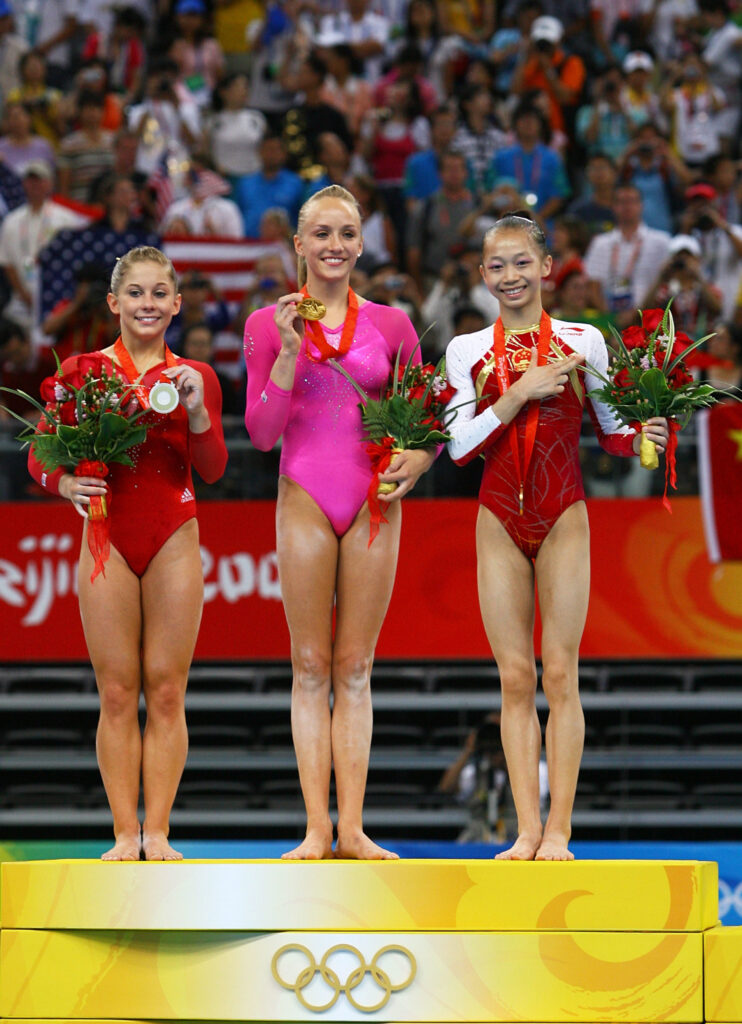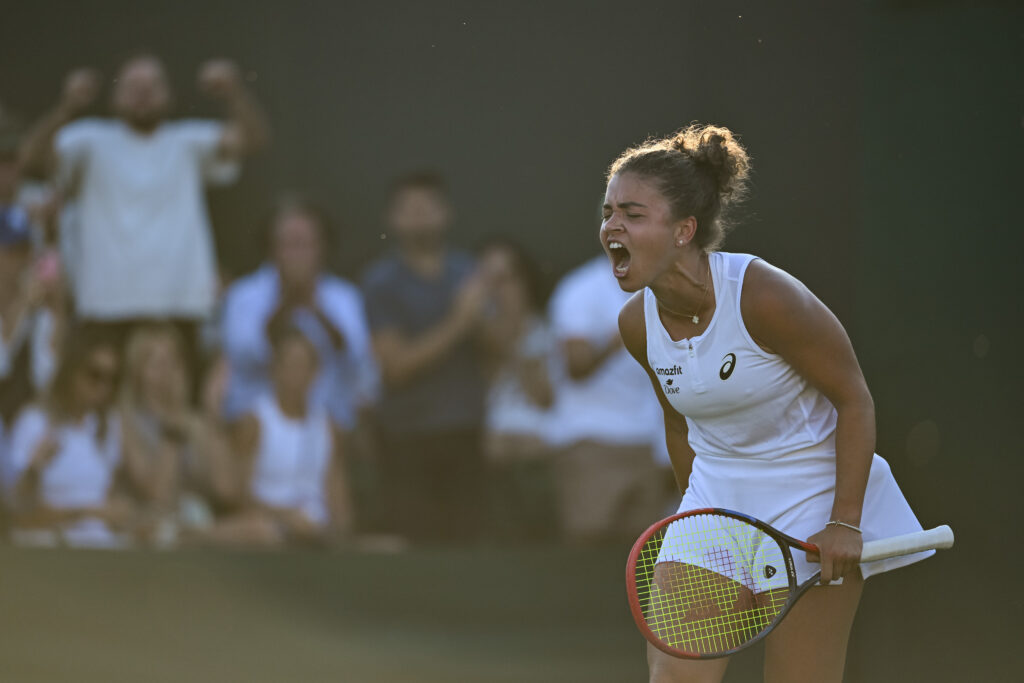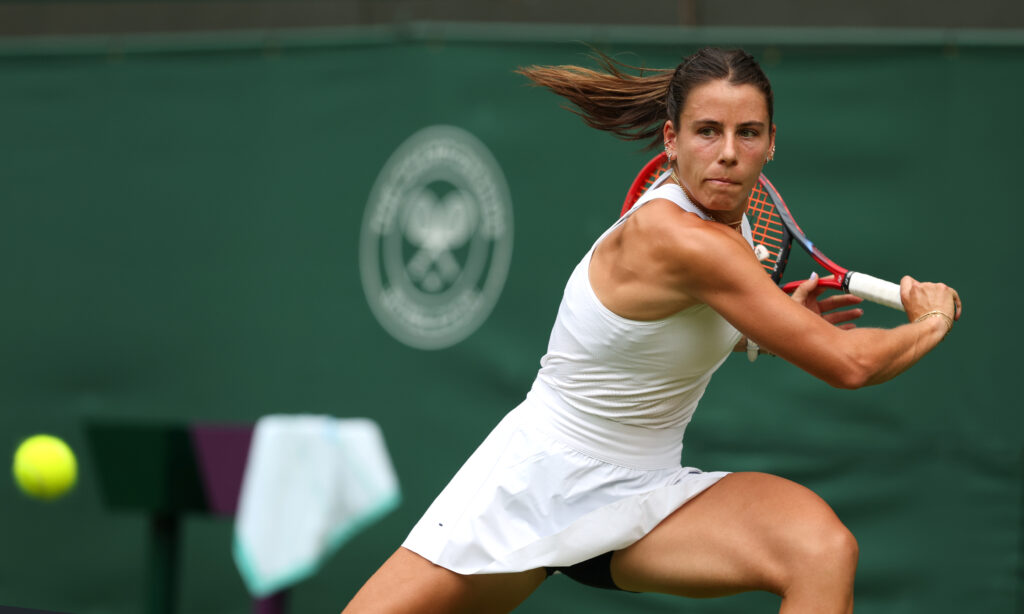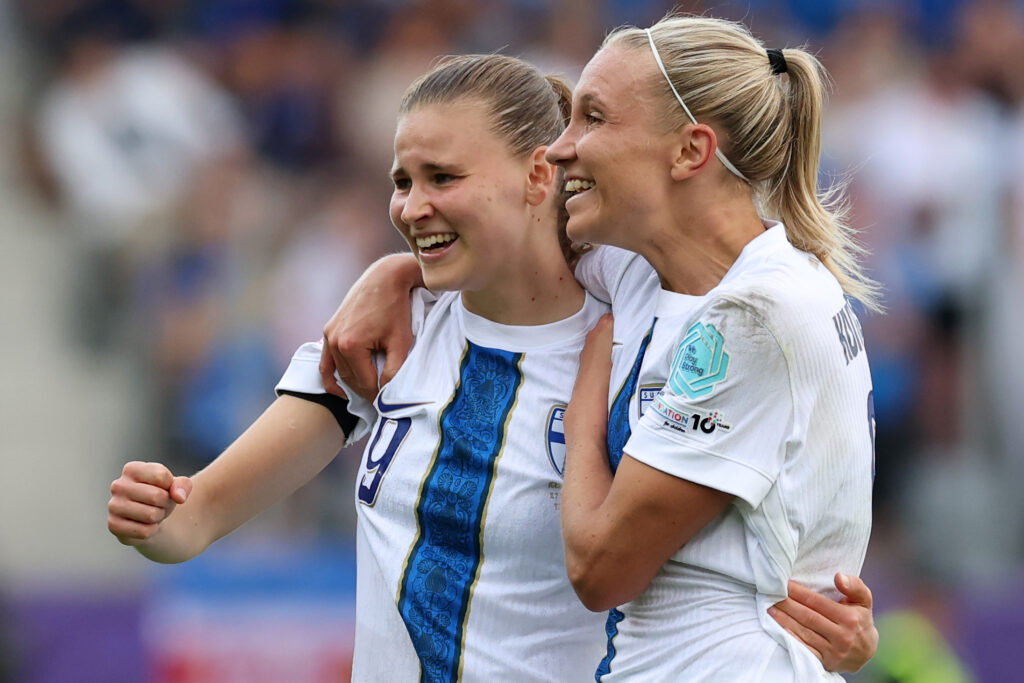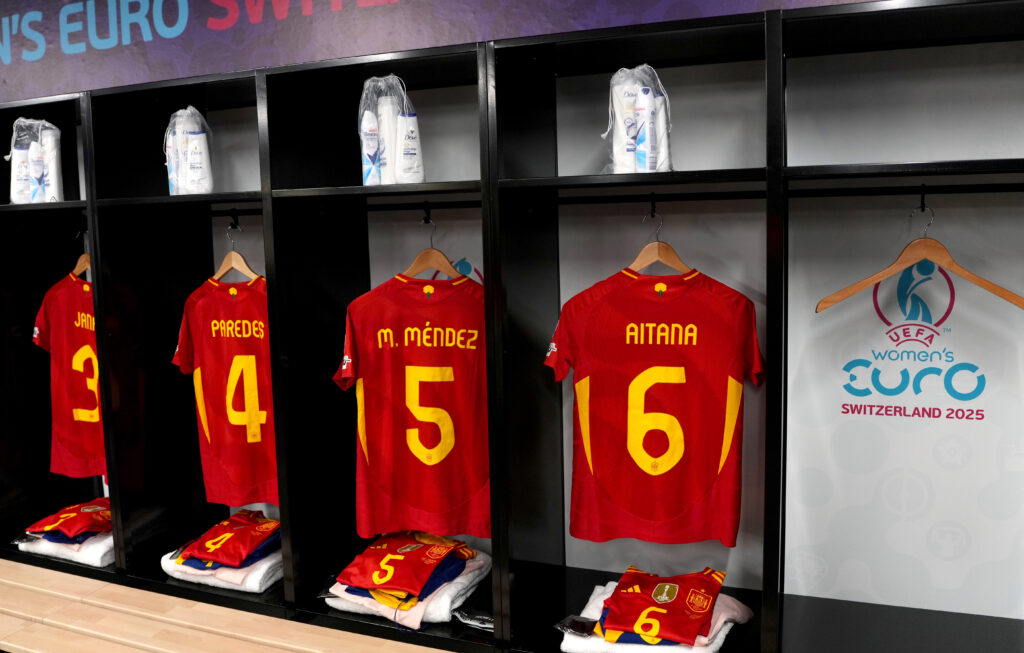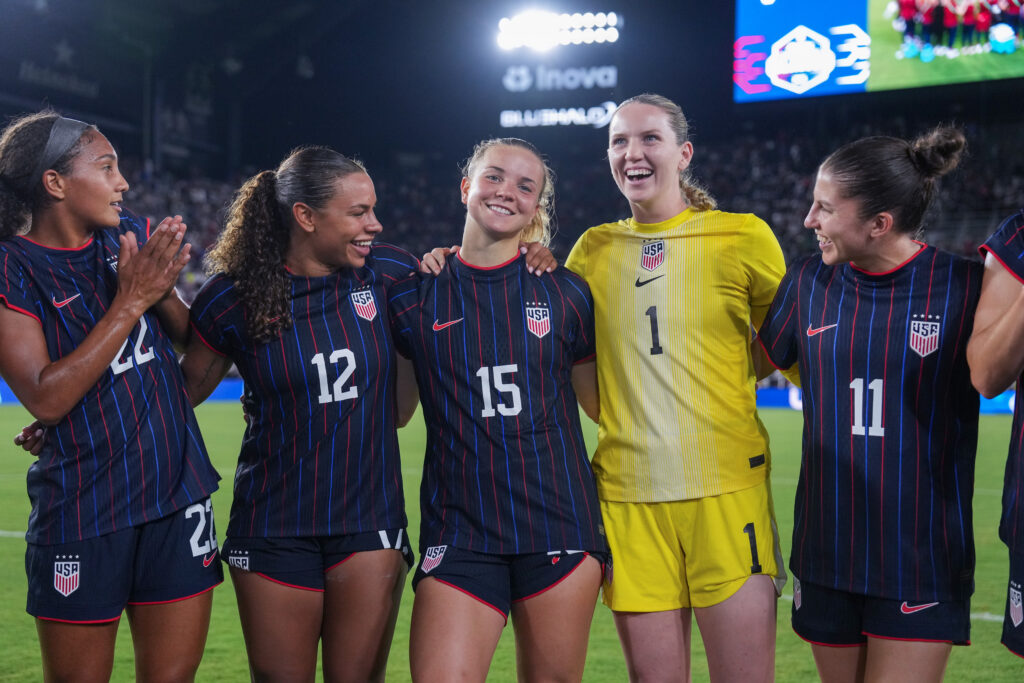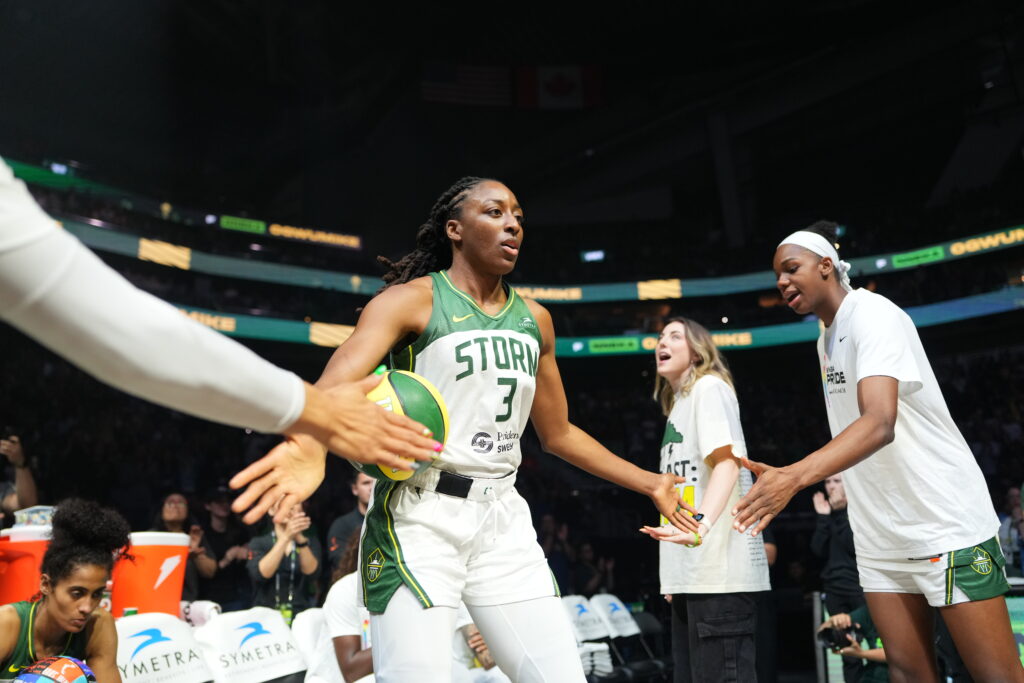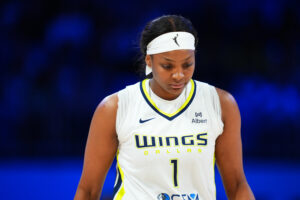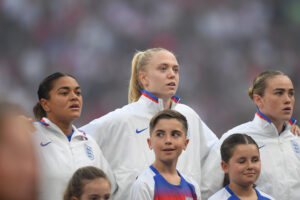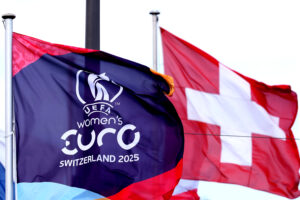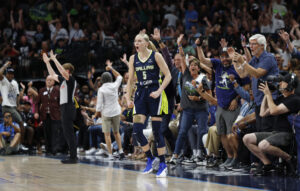Leading up to the 2008 Beijing Olympics, Nastia Liukin and her U.S. teammate Shawn Johnson (now Johnson East) were the top two gymnasts in the world. There was no question before the games that it would be a two-woman duel for Individual All Around gold, and every fan on the planet was speculating which of the two would show up when it counted most.
East had the compact, muscular build of the quintessential gymnast, whereas Liukin had inherited a more lanky, flexible physique from her rhythmic gymnast mother. The 18-year-old Liukin and 15-year-old East were close friends and Beijing roommates, and had been trading the one and two spots back and forth in pre-Olympic competitions.

But once in Beijing, the more veteran Liukin was able to outperform her teammate for Olympic gold in the Individual All-Around, the ultimate individual achievement in gymnastics. Sharing that moment with her father and coach, Valeri Liukin, who had lost his one chance at all-around Olympic gold by one tenth of a point twenty years prior while competing for the Soviet Union, was both extremely special and emotional.
But almost straight away, Liukin felt a sense of sorrow saddle up next to her joy.
“Immediately I was like, ‘What now?’” she recalls to Kelley O’Hara on the Just Women’s Sports Podcast, “Waking up the next day… it was just this strange feeling of accomplishment mixed with almost sadness and glimpses of depression that it was over.”
While “post-Olympic depression” isn’t an official medical diagnosis, it accurately describes the emotional state many elite athletes experience after the games. It’s even the subject of Michael Phelps’ recent HBO documentary “Weight of Gold.” And the fact that the world’s most decorated Olympic athlete of all time has struggled to find self-worth outside of the global sporting spotlight speaks to the power of the feeling that set in for Liukin when she left Beijing in 2008.
Alongside this perplexing gloom was the fact that her friendship with East ended as soon as they left China. The battle for gold had played out and the medals had been given. One of them won, and the other had lost. As two young women whose identities were conjoined to their public personas, they couldn’t find a way to be friends when their management teams profited from constantly pitting them against each other and consumer demand seemed to revel in it.
Over the next couple years, Liukin hemmed and hawed about her gymnastics future but took advantage of many lucrative opportunities bestowed upon the reigning champion. Leading up to the 2012 London Olympics, not yet able to visualize who she was if not a gymnast, she decided to attempt the almost impossible, qualifying for a second straight Olympics at 22 years old in a sport where elite athletes have a torturously short shelf-life. She knew the chances were remote, but she also knew the regret of not trying would be worse than failing.
“I just knew that I didn’t want to be sitting in the stands [in London] thinking, ‘What if?’” she tells O’Hara.
At the 2012 Olympic trials, in what ended up being the final competitive performance of her career, Liukin began her famously challenging routine on the uneven bars, her signature event, with the poise of a seasoned veteran. But in the middle of her routine, coming around from a release she’d done countless times before, Liukin missed the bar and fell with a loud and violent smack, face down on the mat below.
“Immediately, I was embarrassed,” she confesses to O’Hara. She remembers thinking, “You are the best in the world, you are not supposed to fall on your face.”
Liukin knew in that moment that her life as an Olympic athlete was officially over. After taking a few seconds to get her bearings and ensure nothing but her ego had been damaged, she re-chalked and got back on the bars to finish her routine.
What happened next completely surprised her.
“All of a sudden I started seeing people stand on their feet,” she recalls to O’Hara, “I quickly realized these people were giving me a standing ovation. It was the first standing ovation of my entire career, for the worst routine of my entire career. That was the moment that I realized we are not defined by our success… These people are clapping and cheering just for me as a person.”
In that moment, Liukin was finally able to separate a permanent and persisting sense of self from her identity as a gymnast. She became someone who did gymnastics, instead of a gymnast with a capital G.
And her relationship with her once rival found space to grow again.
Once East and Liukin had grown into who they were beyond gymnastics, they realized how badly they missed their friendship. Reconnecting prior to East’s 2016 wedding, the two are now closer than ever, and Liukin is the godmother of East’s young son.
Looking back, Liukin now understands why the crowd stood and cheered after her abysmal mistake at the 2012 Olympic trials.
“It was the relatability,” she explains to O’Hara. “Not many people can relate to winning an Olympic gold medal. Every single person in this world can relate to falling on their face, literally or figuratively. It’s, how do I pick myself up? And how do I keep going? How do I not let that fall define me and who I am as a person?”
The unexpected sense of emptiness which followed her achieving her life’s dream in Beijing, along with the surprising standing ovation after her biggest failure four years later, bookended a valuable lesson Liukin is now sharing with the world: it’s how we navigate the journey of aiming, not the actual acquirement of the aim itself, that is the source of true meaning, purpose, and fulfillment.
